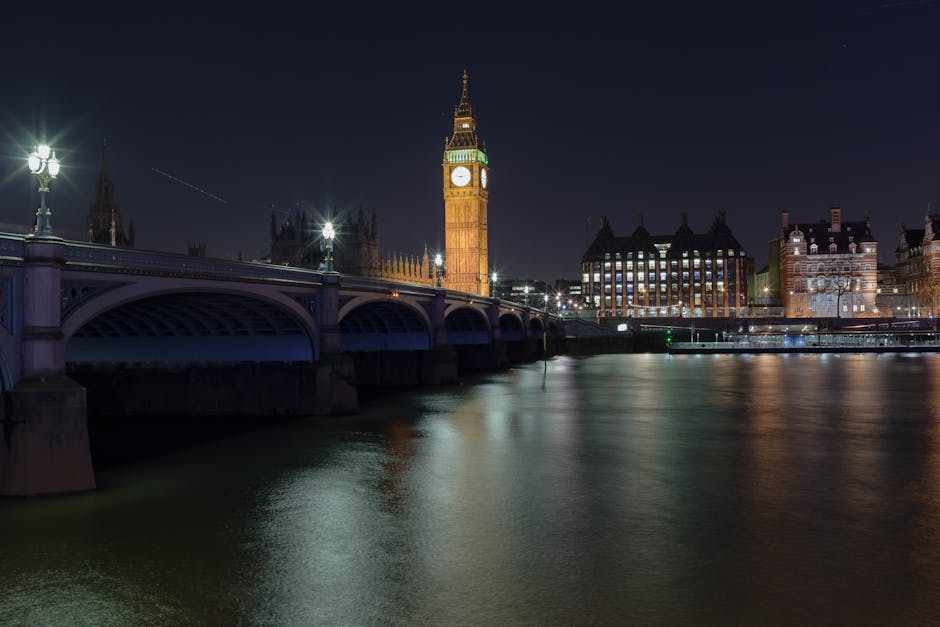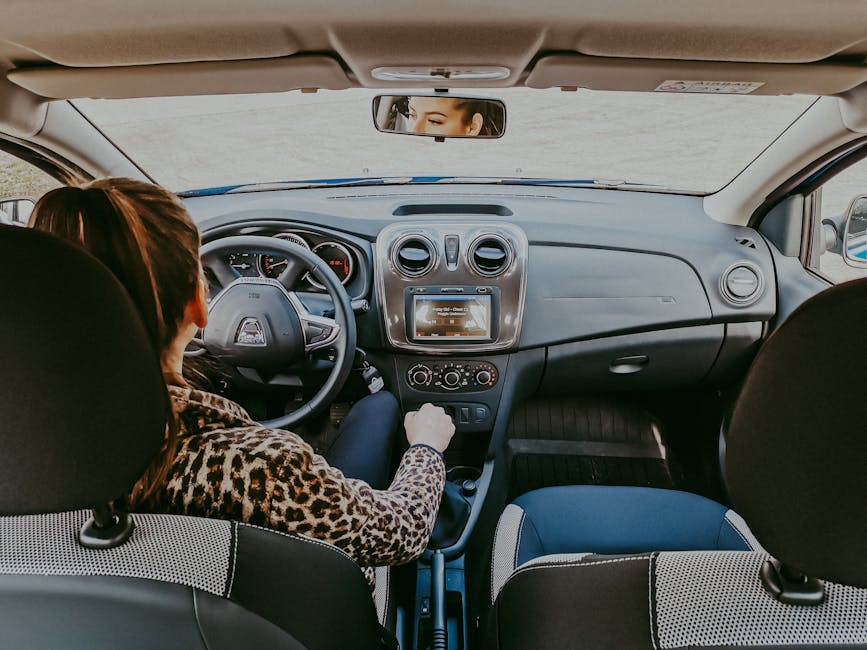How Long Does It Take To Drive Across The Uk? We Have The Answer
Embark on a journey across the stunning landscapes of the United Kingdom, and discover the answer to an age-old question: how long does it take to drive across this diverse nation?
Like traversing a rich tapestry of history, culture, and natural beauty, driving across the UK promises an inthralling adventure. However, before setting off on this epic road trip, it is essential to understand the factors that influence travel time.
From traffic congestion and road conditions to distance and speed limits, meticulous planning is paramount for estimating driving time accurately. In this article, we will delve into these factors in detail and provide you with insights on the best routes for a smooth journey.
Additionally, we will explore pit stops and attractions along the way that can enhance your experience. So buckle up as we navigate through this informative guide to ensure a successful road trip where you are in complete control of your UK exploration.
Key Takeaways
- Factors that influence travel time across the UK include traffic congestion, road conditions, distance, and speed limits.
- Traffic congestion, especially during peak hours or due to accidents or roadworks, can significantly extend travel time.
- Road conditions such as potholes and adverse weather can slow down vehicles and reduce average speeds.
- Estimating driving time is crucial for trip planning, with lighter traffic resulting in shorter travel times and heavier traffic leading to longer journey durations.
Factors Affecting Travel Time

Various factors can impact the duration of travel across the UK. Two significant elements that affect the time it takes to drive across the country are traffic congestion and road conditions.
Traffic congestion is a major factor that can significantly extend travel time. The UK has bustling cities and busy motorways, particularly during peak hours. Congested roads not only slow down vehicles but also lead to frequent stops and starts, increasing overall travel time. Additionally, accidents or roadworks can cause further delays, especially on major routes. As such, drivers should be prepared for potential traffic jams when planning their journeys.
Road conditions also play a crucial role in determining travel time across the UK. While many highways are well-maintained and provide smooth driving experiences, some roads may have potholes or other damage that can slow down vehicles. Moreover, adverse weather conditions such as heavy rain, snowfall, or fog can make driving more challenging and reduce average speeds. It is important for drivers to stay informed about road conditions before setting off on their journey to avoid unexpected delays.
Considering these factors when estimating driving time across the UK will help individuals plan their trips effectively. By accounting for potential traffic congestion and being aware of any road conditions that may affect speed, travellers can better manage their expectations and ensure smoother journeys.
Transitioning into the subsequent section about estimating driving time across the UK:
Taking these factors into account is essential when calculating an estimated driving time across the UK without encountering any unforeseen delays or obstacles.
Estimating Driving Time Across the UK

One possible estimate for the duration of a journey from one end of the United Kingdom to the other can be approximated by considering the vast expanse of lush landscapes and charming towns that must be traversed, creating an experience akin to embarking on a captivating adventure. Estimating driving time across the UK is influenced by various factors, with traffic conditions being a significant consideration.
To help visualise the impact of traffic conditions on travel time, we can refer to a table that provides insight into how different levels of traffic congestion affect journey duration. The table below demonstrates this correlation:
| Traffic Conditions | Estimated Driving Time |
|---|---|
| Light | 9-10 hours |
| Moderate | 11-12 hours |
| Heavy | 13-15 hours |
| Severe | 16+ hours |
These estimates, however, are based on ideal road conditions and may vary depending on unforeseen circumstances such as accidents or roadworks. It is crucial to note that these figures are intended as rough guidelines and should not be considered definitive.
When estimating driving time across the UK, it is essential to consider potential delays due to peak travel periods or major events. For instance, during holiday seasons or popular festivals, increased traffic volume can significantly extend journey duration.
Considering all these factors and variables affecting travel time allows individuals to have greater control over their journeys. By understanding typical driving times and taking into account current traffic conditions, travellers can plan their trips effectively and ensure a smoother experience.
Transitioning seamlessly into the subsequent section about 'best routes for a smooth journey,' it is important to explore alternative routes that may contribute to shorter travel times without compromising scenic beauty or cultural experiences.
Best Routes for a Smooth Journey

Optimal routes that ensure a seamless journey through the United Kingdom can be identified to minimise travel disruptions and maximise efficiency. When planning a cross-country drive, travellers often seek scenic routes that provide beautiful landscapes and allow them to fully experience the diverse regions of the UK. However, it is important to consider potential traffic congestion along these picturesque roads.
One popular route for a smooth journey across the UK is the A1 road, which stretches from London to Edinburgh. This route offers a balance between efficiency and scenic beauty, taking drivers through charming English villages and offering glimpses of stunning countryside.
Another option is travelling via the M6 motorway, which connects London with Scotland. While this route may not offer as many scenic views as the A1 road, it provides a faster way to reach your destination due to its direct path.
In addition to these main routes, there are several alternative roads that can be taken depending on individual preferences and desired attractions along the way. For example, those interested in coastal scenery might consider deviating from the main highways and taking smaller coastal roads such as the A149 or A165. These routes offer breathtaking views of cliffs, beaches, and charming seaside towns.
It is crucial to note that some of these scenic routes may experience higher levels of traffic congestion during peak travel times or tourist seasons. Therefore, planning ahead by checking real-time traffic updates and considering alternative routes will help avoid unnecessary delays.
As we move forward into exploring pit stops and attractions along the way without compromising time efficiency...
Pit Stops and Attractions Along the Way

A plethora of pit stops and attractions can be discovered along the scenic routes across the United Kingdom, offering travellers a diverse range of experiences to enhance their journey. Whether you are looking for historical landmarks, natural wonders, or cultural hotspots, there is something for everyone to enjoy.
Here are five must-see attractions and pit stop recommendations along the way:
Stonehenge: Located in Wiltshire, this ikonic prehistoric monument is a UNESCO World Heritage Site. Marvel at the ancient stone circle and ponder over its mysterious origins.
The Lake District: Head north to Cumbria and immerse yourself in the stunning landscapes of the Lake District National Park. Take a leisurely stroll around Lake Windermere or challenge yourself with a hike up Scafell Pike, England's highest peak.
Edinburgh Castle: Cross the border into Scotland and visit this historic fortress perched on top of an extinct volcano. Explore its impressive architecture and learn about Scotland's rich history.
Stratford-upon-Avon: Discover the birthplace of William Shakespeare in Warwickshire. Visit his childhood home and catch a performance by the renowned Royal Shakespeare Company.
Bath: Travel southwest to Somerset and indulge in some relaxation at Bath's famous Roman Baths. Admire the well-preserved ancient ruins and take a dip in the thermal waters at Thermae Bath Spa.
These pit stops offer not only fascinating sights but also opportunities to delve into local culture, history, and natural beauty along your journey across the UK. As you continue your road trip adventure, keep these recommendations in mind for an unforgettable experience.
Now let's move on to explore some tips for a successful road trip without missing out on any key aspects of your journey:
Plan your itinerary: Research and plan your route in advance, considering the cultural, historical, and natural attractions along the way. Make a list of must-visit places, landmarks, and scenic spots to ensure you don't miss out on any highlights.
Allow for flexibility: While it's good to have a plan, be open to spontaneous detours or discoveries. Sometimes the best experiences happen when you stumble upon hidden gems or take a scenic detour off the beaten path.
Pack essentials: Ensure your road trip essentials are packed, including a first aid kit, spare tyre, car charger, and a navigation system. Additionally, don't forget to bring comfortable clothing and footwear for exploring different terrains and weather conditions.
Stay connected: To avoid missing out on important information or last-minute changes, have a reliable communication system in place. Make sure your mobile phone is fully charged and have a backup charger or power bank handy.
Take breaks and rest: Long drives can be tyring, so make sure to take regular breaks to stretch your legs, grab a snack, or rest. Plan your stops at interesting landmarks or scenic viewpoints to make the most of your breaks.
Capture memories: Bring a camera or use your smartphone to capture the stunning landscapes, historic sites, and memorable moments along the way. These photos will be cherished memories of your road trip adventure.
Embrace local cuisine: One of the joys of road trips is indulging in local food. Try regional specialities, visit local cafes or markets, and savour the unique flavours of each destination. Don't be afraid to ask locals for recommendations!
Respect the environment: As you enjoy the natural beauty of the UK, remember to leave no trace. Dispose of your waste properly, follow designated trails, and respect wildlife and protected areas. Help preserve the beauty for future road trippers to enjoy.
Enjoy the journey: Remember, a road trip is not just about reaching your destination; it's about the journey itself. Take time to soak in the scenery, enjoy the music, have meaningful conversations with your travel companions, and embrace the freedom of the open road.
By following these tips, you can ensure a successful road trip across the UK, immersing yourself in its rich culture, history, and natural wonders for an unforgettable experience.
Tips for a Successful Road Trip

To ensure a successful road trip, it is crucial to plan your itinerary in advance, considering the various cultural, historical, and natural attractions along the way. Road trips offer a unique opportunity to explore different destinations at your own pace and immerse yourself in the beauty of the surroundings. Whether you are embarking on a short or long journey across the UK, here are some essential planning tips to make your road trip memorable.
Firstly, it is important to pack all the necessary road trip essentials. These include a reliable map or GPS system, spare tyres, emergency tools, and a first aid kit. It is also advisable to carry enough food and water for the duration of your journey, especially if you plan on driving through remote areas where amenities may be scarce.
Secondly, research and plan your route carefully. Consider incorporating pit stops at attractions that aline with your interests. For example, if you enjoy history, visit ancient sites like Stonehenge or Hadrian's Wall along the way. If nature is more appealing to you, explore national parks such as Snowdonia or the Lake District. To keep track of these attractions and stay organised during your trip, consider using a table like the one below:
| Attraction | Location |
|---|---|
| Stonehenge | Wiltshire |
| Hadrian's Wall | Northumberland |
| Snowdonia National Park | Wales |
| Lake District National Park | Cumbria |
Lastly, allow some flexibility in your schedule for unexpected discoveries or detours that may arise during your journey. Embrace spontaneity while still adhering to an overall planned structure.
By following these road trip planning tips and being well-prepared with essentials and an organised itinerary that includes compelling attractions along the way, you can ensure a successful and enjoyable adventure across the UK.
Frequently Asked Questions
Are there any tolls or fees that need to be paid when driving across the UK?
Toll fees are applicable when driving across the UK, adding a financial aspect to the journey.
The cost of tolls varies depending on the route and type of vehicle used. For example, a standard car can expect to pay around £5 for crossing the Severn Bridge. However, certain vehicles with higher weight or size may incur additional charges.
It is important for drivers to be aware of these fees and plan their travel expenses accordingly. Additionally, specific vehicle requirements such as emission standards should also be considered to ensure compliance with UK regulations.
Is it necessary to have a specific type of vehicle for a road trip across the UK?
When embarking on a road trip across the UK, it is not necessary to have a specific type of vehicle. The benefits of road trips in the UK are numerous, regardless of the vehicle you choose. However, certain factors should be considered, such as fuel efficiency and comfort.
A vehicle with good fuel efficiency will help minimise costs during long journeys, while a comfortable vehicle will enhance overall enjoyment and relaxation during the trip.
Ultimately, the choice of vehicle depends on personal preferences and requirements for a pleasant and convenient road trip experience.
Are there any restrictions or regulations for driving across the UK, such as speed limits or specific road rules?
Restrictions and regulations for driving across the UK encompass various aspects including speed limits, road rules, tolls, fees, vehicle type, public transportation, safety precautions, and tips.
Speed limits differ depending on the type of road, with national speed limits set at 70 mph on motorways and lower limits on other roads.
Road rules entail adherence to traffic signs and signals, priority rules at roundabouts and junctions.
Tolls may be applicable for certain bridges or tunnels.
It is important to consider vehicle suitability for the journey as well as familiarising oneself with safety precautions and tips to ensure a smooth travel experience.
Can I use public transportation instead of driving to travel across the UK?
Using public transportation for a road trip across the UK offers several alternative modes of transportation.
The extensive network of trains, buses, and trams allows for convenient and efficient travel between cities and regions. Trains are particularly popular due to their speed and reliability.
Additionally, buses provide flexibility in reaching more remote areas.
With well-established schedules and numerous transportation options available, travellers can easily plan their journey using public transportation to explore the diverse landscapes and attractions of the UK.
Are there any specific safety precautions or tips to keep in mind while driving across the UK?
When embarking on a road trip across the UK, it is essential to prioritise safety by adhering to specific precautions and tips.
To ensure a secure journey, drivers should familiarise themselves with local traffic rules and regulations.
Additionally, maintaining appropriate speeds, especially in residential areas or near schools, can prevent accidents.
It is advisable to regularly cheque weather forecasts and adjust driving techniques accordingly.
Lastly, staying alert and avoiding distractions such as mobile phones contribute significantly to safe driving practises in the UK.
Contact us to discuss our services now!

